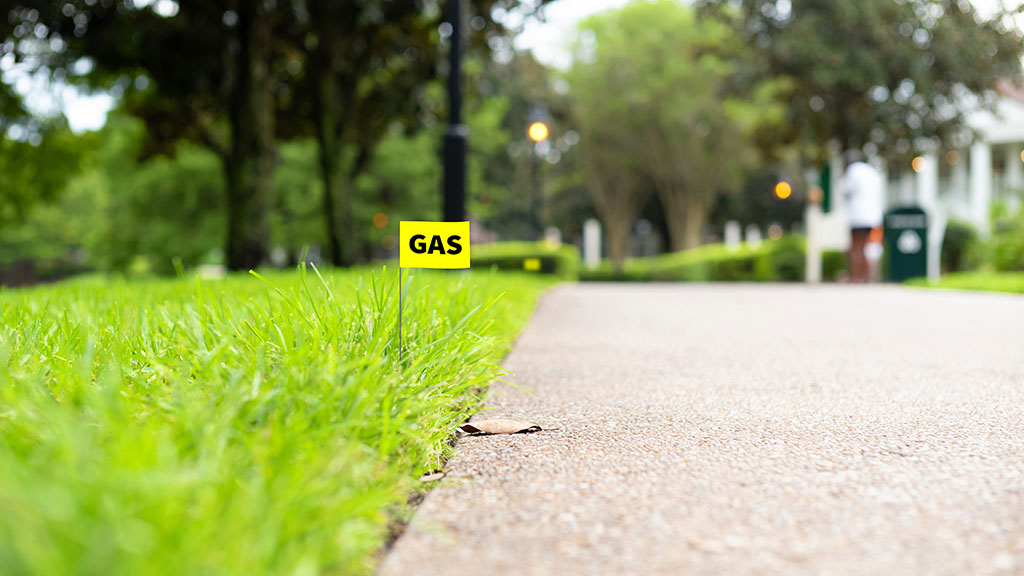If implemented, a new locate delivery charge by Enbridge Gas could have significant implications on construction in Ontario, add millions of dollars to big infrastructure projects and set a dangerous precedent, stakeholders say.
“About two weeks ago we got this notice from Enbridge Gas noting that as of May 1 they were going to start charging for locate delivery,” explained Nadia Todorova, executive director of the Residential and Civil Construction Alliance of Ontario (RCCAO).
“It was going to be $200 per locate and for every relocate request which really took us aback because over the last 11 years since the Ontario Underground Infrastructure Notification System has been in place, there has never been a charge to get a locate.
“So this was going to be an incredibly seismic shift to the way that locate system works in Ontario, coupled with the fact that they gave us about six weeks notice before digging season starts and they start to implement this fee. One of our biggest concerns was the fact that this was going to set a precedent.”
On March 23, Enbridge issued an update stating, “Enbridge Gas would like to provide notice of our decision to put the implementation of the locate delivery charge on pause. We will use this time to continue our industry consultations and Enbridge Gas will provide additional information once we have confirmed our approach.”
In a letter to Premier Doug Ford, the RCCAO, the Residential Construction Council of Ontario (RESCON), with support from the Ontario Sewer and Watermain Construction Association (OSWCA) as well as the Ontario General Contractors Association, the Heavy Construction Association of Toronto, the Municipal Engineers Association, the Ontario Road Builders Association and the Toronto and Area Road Builders Association, states the Ontario Underground Infrastructure Notification System Act does not explicitly provide utility owners with the authority to charge a fee for a locate request.
“If the fee had gone ahead, it would make Ontario the only jurisdiction in North America to charge excavators for standard locate delivery,” Todorova said. “In terms of economic competitiveness and just getting projects off the ground it would have huge implications.”
They were also not sure how it would work.
“It just creates this unnecessary layer of administration burden to a process that is already very convoluted. It’s delayed all the time, so it would not improve things,” Todorova said. “It just really goes against the principles of the Ontario Underground Infrastructure Notification System and everything that it stands for in terms of making locates available for everyone, making sure that those locates are delivered in a very safe and effective manner.”
Furthermore, it will have immediate financial implications on infrastructure projects such as roads, bridges, highway, transit and housing projects. For example, if all utility providers implement the same charge for locate delivery, it will add millions of dollars in locate charges to the Ontario Line and Highway 413.
“Last year, according to One Call statistics, Enbridge performed 380,000 locates,” said Patrick McManus, executive director of OSWCA. “We don’t know the splits between construction project and single household locates, but even assuming the split is 50/50, that would result in $40 million in revenue collected from this tax. This is over and above whatever operational costs have already been built into the gas rates over the last 11 years to account for locates.”
Over the last 18 months, industry partners have been working with government, the locate industry and Ontario One Call to improve the way locates are delivered through Bill 93, which is slated to come into effect April 1.
McManus said the announcement and notice was extremely disappointing given it was never tabled in any of the One Call consultation group meetings that Enbridge has chaired over the year.
“This type of charge is unnecessary and only serves to further delay our project work and further delay the building of critical infrastructure that we so desperately need in this province,” he noted.
“We view this as a public infrastructure project tax and done in response to the province instituting new rules last year that now allow a utility company to receive a small administrative monetary penalty (AMP) for chronically late locate delivery. The One Call Act includes a delivery timeline of five days for locates.
“These timelines are rarely ever met on public construction projects and are the cause of huge delays for project delivery. The province notified utilities that beginning this year, they would consider AMPs for locates delivered after 15 days.”
RESCON president Richard Lyall said although it doesn’t seem like a lot of money, it will add up.
“It’s not just Enbridge,” he said. “You can have multiple calls on a project and it adds up. We’re at the point now where we’re looking at everything in terms of what goes into the cost of housing and whether or not it’s justified. If you take this to its logical conclusion you could be talking about a few thousand dollars per unit depending on the circumstances.”
Follow the author on Twitter @DCN_Angela











All this makes sense, but the cost per locate exists already, but right now the facility owners absorb it and pass on the cost indirectly to their customers. Food for thought is that there is a constant flow of complaints that some contractors abuse the system by requesting to many locates that are not needed. Pay for locates would no doubt stop this cold which would reduce the burden on locators, helping them get locates done on time. Like everything there seem to be pros and cons to this idea.